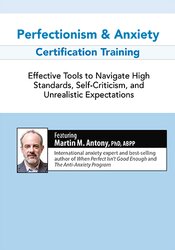Si iscriva oggi stesso a un corso online per un apprendimento flessibile e autonomo, senza necessità di orari fissi.


-
 Corso onlineSia che siate nuovi alla terapia Internal Family Systems IFS) o che pratichiate questo modello da anni, registratevi e scoprite come perfezionare e personalizzare il modello per adattarlo alle esigenze specifiche dei vostri clienti.Valore: 1.140,66 euro *€275,99Sia che siate nuovi alla terapia Internal Family Systems IFS) o che pratichiate questo modello da anni, registratevi e scoprite come perfezionare e personalizzare il modello per adattarlo alle esigenze specifiche dei vostri clienti.21 ottobre, 2020Corso onlineValore: 1.140,66 euro *€275,99Sia che siate nuovi alla terapia Internal Family Systems IFS) o che pratichiate questo modello da anni, registratevi e scoprite come perfezionare e personalizzare il modello per adattarlo alle esigenze specifiche dei vostri clienti.Valore: 1.140,66 euro *€275,99
Corso onlineSia che siate nuovi alla terapia Internal Family Systems IFS) o che pratichiate questo modello da anni, registratevi e scoprite come perfezionare e personalizzare il modello per adattarlo alle esigenze specifiche dei vostri clienti.Valore: 1.140,66 euro *€275,99Sia che siate nuovi alla terapia Internal Family Systems IFS) o che pratichiate questo modello da anni, registratevi e scoprite come perfezionare e personalizzare il modello per adattarlo alle esigenze specifiche dei vostri clienti.21 ottobre, 2020Corso onlineValore: 1.140,66 euro *€275,99Sia che siate nuovi alla terapia Internal Family Systems IFS) o che pratichiate questo modello da anni, registratevi e scoprite come perfezionare e personalizzare il modello per adattarlo alle esigenze specifiche dei vostri clienti.Valore: 1.140,66 euro *€275,99 -
 Corso onlineGabor Maté va oltre le istruzioni e dimostra esattamente come utilizza l'Inchiesta Compassionevole per facilitare la guarigione. Lo guardi mentre mette in pratica il suo metodo unico con oltre 10 persone del pubblico.Valore: 689,89 € *€275,99Gabor Maté va oltre le istruzioni e dimostra esattamente come utilizza l'Inchiesta Compassionevole per facilitare la guarigione. Lo guardi mentre mette in pratica il suo metodo unico con oltre 10 persone del pubblico.15 luglio, 2022Gabor Maté va oltre le istruzioni e dimostra esattamente come utilizza l'Inchiesta Compassionevole per facilitare la guarigione. Lo guardi mentre mette in pratica il suo metodo unico con oltre 10 persone del pubblico.Valore: 689,89 € *€275,99
Corso onlineGabor Maté va oltre le istruzioni e dimostra esattamente come utilizza l'Inchiesta Compassionevole per facilitare la guarigione. Lo guardi mentre mette in pratica il suo metodo unico con oltre 10 persone del pubblico.Valore: 689,89 € *€275,99Gabor Maté va oltre le istruzioni e dimostra esattamente come utilizza l'Inchiesta Compassionevole per facilitare la guarigione. Lo guardi mentre mette in pratica il suo metodo unico con oltre 10 persone del pubblico.15 luglio, 2022Gabor Maté va oltre le istruzioni e dimostra esattamente come utilizza l'Inchiesta Compassionevole per facilitare la guarigione. Lo guardi mentre mette in pratica il suo metodo unico con oltre 10 persone del pubblico.Valore: 689,89 € *€275,99 -
Diventa un affiliato
Argomenti di tendenza:












